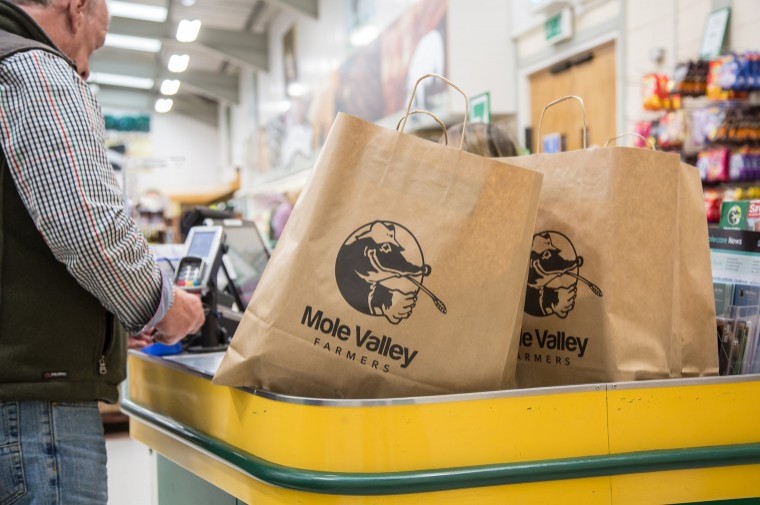Mole Valley Farmers reports another progressive trading year, with revenues, gross margin and operating profit reflecting a year-on-year increase for both agriculture and rural retailing for the year ending 30 September 2018.
Agricultural business and rural stores grew by 8.7% and 3.6% respectively, while revenue across the group increased by over 5% to £490 million in the year. This was due to several factors including a late spring, followed by a dry summer, which drove ‘out of season’ demand for livestock feeds and other inputs.
Group operating profit increased significantly over the previous year to £3.8 million, however, some exceptional and unavoidable one-off operating cost constrained overall net profitability before tax to £1.4 million.
Chief executive, Andrew Jackson explains: “Significant expense was associated with the intended acquisition of Countrywide Farmers, which unfortunately didn’t gain phase one approval from the Competition and Markets Authority. Fortunately, we did eventually manage to acquire three stores from the CF administrator; Penzance, Tavistock and Cirencester, each of which have since been well supported by local customers who had feared losing their local agricultural store.
“In addition, un-budgeted expenditure became essential to restore operational replenishment capability to our network of rural stores.”
At the start of the trading year, a scheduled move to a single, central distribution location had taken place. The intention was to consolidate warehousing requirements into one location and provide a more cost-effective delivery service to all stores. However, from late October until early Summer, demand from stores exceeded operational capability, leading to poor product availability, added cost and some inconvenience for customers.
Andrew adds: “We have since reduced our reliance on central distribution and reinstated a more inclusive supply chain solution. This new approach has utilised supply chain opportunities, improved direct-to-store deliveries, corrected on-shelf availability, de-risked the business from seasonal volume spikes and crucially, reduced costs back in-line with plan.”
Despite disruptions, the retail business still delivered a very respectable performance, with trading margins on plan, transaction numbers up and revenues increasing by £7.5 million to £218.1 million.
In addition, the business reports:
- Feed volumes increased by 85,000 tonnes leading to total sales nudging 1m tonnes.
- EBITDA increased to £9 million from £7.3 million.
- Dairy compound volumes increased by 10%.
- Blended feeding products grew by 13%.
- Fertiliser volumes exceeded 180,000 tonnes.
- £7.7 million was invested, including the pre-agreed acquisition of the Scottish feed mill, JC Ferguson Ltd.
- Mole Valley Farmers retail stores contributed £96.8m, Mole Country Stores, £93.3m and Bridgmans and FarmDirect retail stores, £27m.
- Investment in Lifetime Dairy in February 2018 highlighted investment in on-farm technical know-how.
- Mole Insurance Services saw a business conversion rate from new recommendations of 69%.
- Visits to the Mole Valley Farmers retail website increased by 48% to over 3.1m.
- Mole Valley Plus handled 9% more calls than the previous year.
With the impending withdrawal from the EU bringing much uncertainty for the UK economy and farmer customers, Andrew says farmer members can be assured that Mole Valley Farmers is working in the interest of its members.
He says: “You can be assured that when we sense more certainty around the likely impact of either leaving or staying in the European market, we will do everything possible to continue providing shareholder value across our operational sphere. Irrespective of the outcome, we must still build for the future to ensure the company continues to remain competitive and has a sustainable outlook.”




